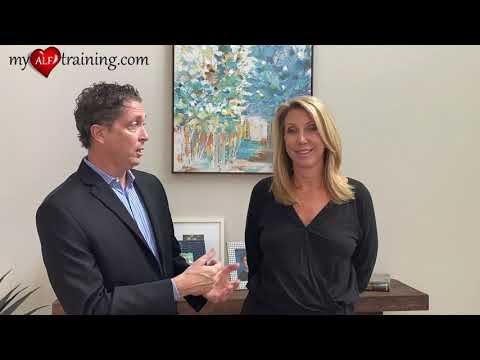Description
Florida Alzheimer’s Level 1 Course Description
Enhance your team’s ability to provide compassionate, effective care with our approved 3-Hour ADRD Level 1 Training Course, designed specifically for direct care staff in Florida’s adult day care centers, adult family-care homes, assisted living facilities, hospices, and nursing homes. This comprehensive Florida Alzheimer’s Training builds on foundational knowledge, delivering practical skills, techniques, and strategies to support residents with Alzheimer’s disease and related disorders (ADRD) throughout their journey.
Key curriculum areas include:
- Behavior Management: Learn to identify common symptoms and behaviors at each ADRD stage, apply problem-solving approaches like the ABC Model, implement targeted strategies for challenging behaviors, and explore alternatives to physical or chemical restraints.
- Assistance with Activities of Daily Living (ADLs): Discover stage-specific strategies for success in dressing, grooming, eating, bathing, toileting, and managing incontinence, with real-world examples to promote dignity and independence.
- Activities for Persons with ADRD: Explore engaging group and individual activities tailored to cognitive needs, fostering stimulation and well-being.
- Caregiver Stress Management: Examine physical, emotional, and financial stressors faced by caregivers, families, and professionals; assess stress levels; and adopt reduction strategies such as self-care, support groups, education, and the Caregiver Bill of Rights.
- Developing Skills for Working with Families and Caregivers: Address family concerns across ADRD stages, understand the grief process tied to ongoing losses, and develop strategies to encourage family participation in care.
- Maintaining a Therapeutic Environment: Delve into care philosophies, indoor/outdoor physical setups, security measures, wandering prevention, safety technologies (e.g., GPS), the value of routines, and staff’s role in the environment.
- Ethical Issues: Integrate principles like autonomy, beneficence, and justice into care approaches, illustrated through at least two case studies per principle to navigate real-life conflicts.
This Florida Memory Care Training aligns with Department of Elder Affairs (DOEA) requirements, revised in April 2025, and includes recommended pre- and post-tests (not exceeding 5% of instruction time) to evaluate knowledge transfer—mandatory for online or self-study formats but beneficial for all. As approved trainers with curriculum valid through July 2028, we ensure your staff meets compliance standards while gaining confidence in person-centered care. Ideal for elevating care quality in specialized settings—enroll today to make a meaningful difference!
Florida Alzheimer’s Level 2 Course Description
Advance your expertise in specialized dementia care with our 4-Hour ADRD Level 2 Training Course, tailored for direct care staff in Florida’s memory care units, assisted living facilities, adult day care, and other settings that advertise or provide dedicated ADRD support. This in-depth Florida Assisted Living Training delves into nuanced aspects of Alzheimer’s disease and related disorders (ADRD), equipping you with advanced skills to deliver high-quality, empathetic care in environments designed for cognitive impairments.
Key curriculum areas include:
- Understanding Alzheimer’s Disease & Related Dementias (ADRD): Gain a foundational grasp by defining dementia and AD/ADRD, reviewing basic brain function, explaining how ADRD impacts the brain versus normal aging, identifying mimicking conditions, and discussing current theories on causes.
- Characteristics of ADRD: Trace the stages and continuum of AD progression, outline common symptoms per stage, and address challenges for both family and professional caregivers to anticipate and mitigate issues.
- Communicating with Persons with ADRD: Understand how ADRD impairs communication, master verbal and nonverbal strategies, define and apply validation therapy with examples (emphasizing presence in the person’s reality), contrast it with reality therapies, and identify optimal situations for its use.
- Caregiver Stress Management: Review physical, emotional, and financial stress types and causes for caregivers; learn assessment methods; and implement reduction strategies like stress techniques, the Caregiver Bill of Rights, self-care, support groups, education, and professional help.
- Medical Information: Examine FDA-approved medications (e.g., cholinesterase inhibitors, glutamate regulators, combination drugs, anti-amyloids) and their side effects; outline reporting processes for suspected medication-related changes; recognize signs of malnutrition and dehydration; and apply care setting strategies to address them.
Aligned with DOEA standards and revised in April 2025, this Florida Alzheimer’s Training is essential for facilities maintaining secure areas or promoting specialized ADRD care. It features recommended pre- and post-tests (limited to 5% of time) for knowledge evaluation—required for online/self-study but advised universally. With our approved curriculum valid through July 2028, this course ensures regulatory compliance and empowers staff to handle sophisticated scenarios. Perfect for those seeking to specialize in Florida Memory Care Training—sign up now to transform your approach to dementia care!




